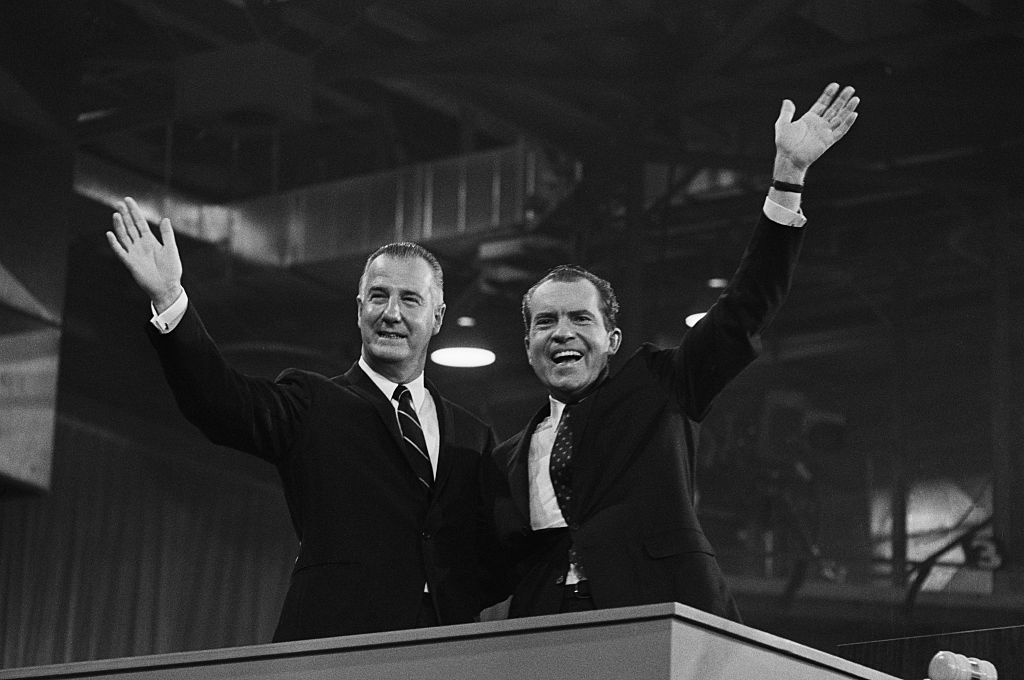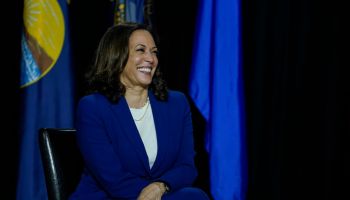
Gov. Spiro Agnew (L) of Maryland and Richard M. Nixon, vice-presidential and presidential candidates, respectively, of the Republican party, accept the cheers of delegates and spectators at the fifth and final session of the Republican National Convention. The two men took the rostrum together after both made their acceptance speeches. | Source: Bettmann / Getty
N
ewsOne is back with Episode 6 of The Black Ballot, an exclusive docuseries exploring the history of African American voting.
Each episode dives deep into American presidents’ decisions and policies, showing their impact on African Americans, especially regarding voting rights.
As Tiffany Cross notes in this episode, “It was an exciting time in politics for Black people. You had the rise of Shirley Chisholm, who was also a founding member of the Congressional Black Caucus. Walter Fontroy was one of the most out-front people. Marion Barry was an activist at this time… The Congressional Black Caucus has most often been referred to as the conscience of the Congress, and the legislation that has come from them individually and collectively has been integral, has been life-changing in Congress.”
Challenges and political scandals
Black political power surged in the 1970s, but not without challenges. Richard Nixon’s “Law and Order” policies aimed to suppress Black activism instead of addressing systemic issues. Dr. Ben Chavis, a member of the Wilmington 10, shares his experience as a political prisoner, revealing how Nixon’s administration used the justice system to silence dissent.
The episode also covers the scandals that led to the resignations of Richard Nixon and Vice President Spiro Agnew. These events allowed Gerald Ford to become the only unelected vice president and president in U.S. history. This situation left many Black Americans doubting the government’s commitment to their rights.
As the decade progressed, Ronald Reagan rose to prominence with his “Welfare Queen” campaign. His rhetoric targeted social welfare programs and paved the way for significant policy shifts in the 1980s. Amidst these changes, Jimmy Carter’s 1976 election brought hope, as he promised a more compassionate approach to governance.
Featuring insights from voices like Kasim Reid, Tiffany Cross, and Dr. Ben Chavis, this episode of The Black Ballot continues to explore the connections between race, politics and power during this critical decade. Their perspectives offer a clearer understanding of the forces shaping the political landscape for African Americans.
Don’t miss this deep dive into the legacy of the Black vote and the ongoing fight for representation. Stay tuned for future episodes of The Black Ballot.
SEE ALSO:
The Black Ballot Episode 5: ‘Political Prostitutes’
The Black Ballot: Nixon, Wallace And The Evolution Of American Politics


